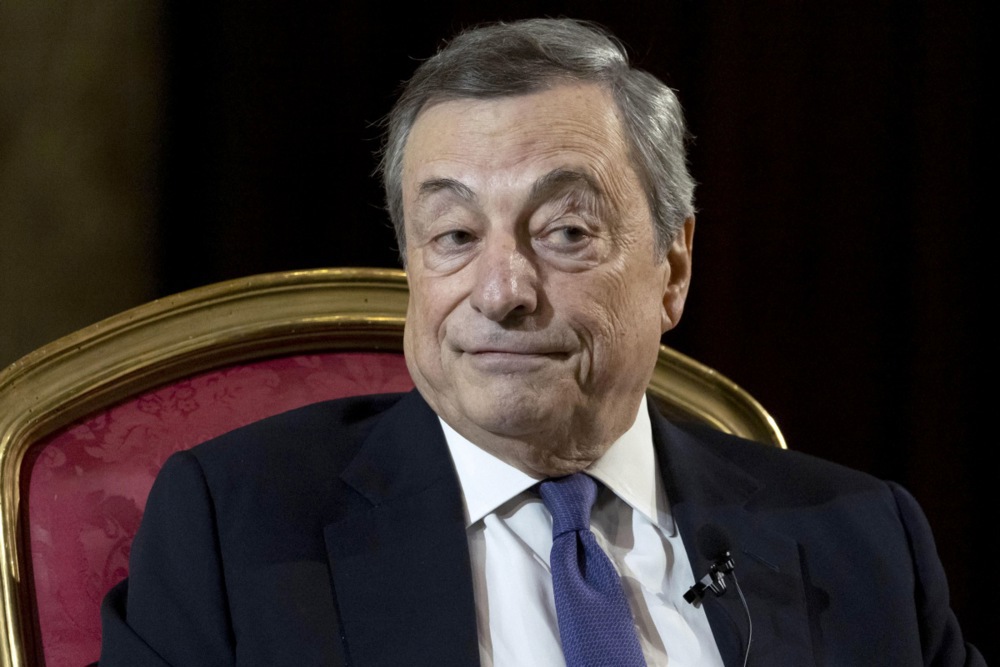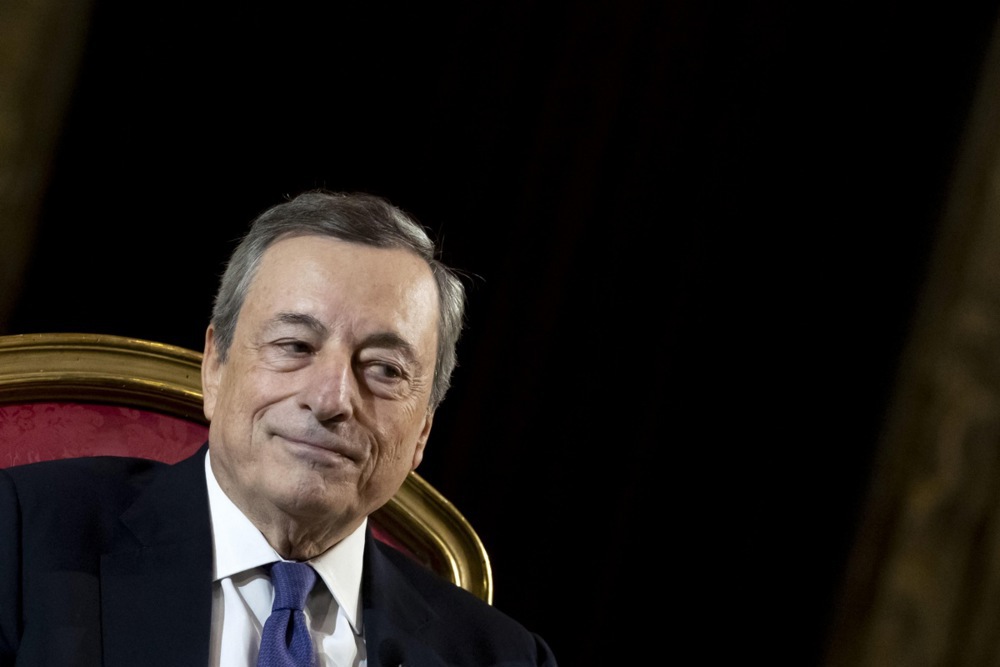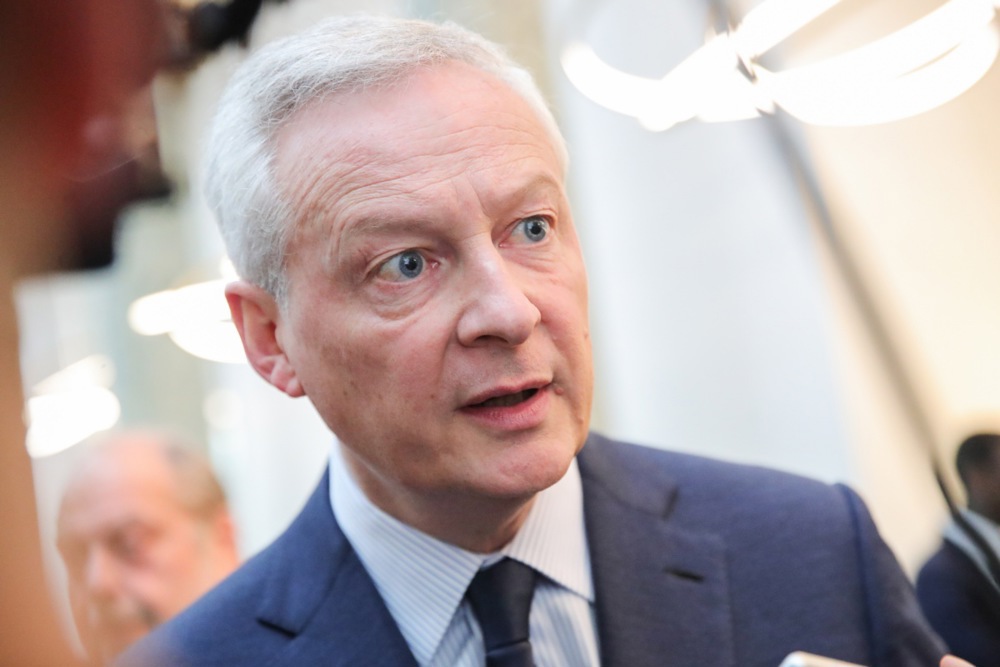Former European Central Bank (ECB) president Mario Draghi has warned about “servitude” towards other economies at his first public meeting since the publication of his advisory report on EU competitiveness.
Speaking at the Italian newspaper Corriere della Sera‘s Time of Women 2024 event on the evening of September 12, Draghi said the European Union “needs a change of perspective”.
In his report published on September 9, Draghi had warned that the EU was falling behind China and the US in numerous areas, especially emerging technology, and said high energy costs in Europe were an obstacle to growth.
“Europe once enjoyed a privileged position,” Draghi said. “It relied on American protection for defence, accessed cheap energy from Russia, and had China as a major export market.
“Today, the landscape has drastically changed. Europe’s growth now lags behind the United States, our productivity has declined, and the per capita income of American families has grown at twice the rate of ours. Moreover, China now controls most of the critical raw materials essential for the high-tech sector.”
Regarding energy and climate, he said: “We can’t pay for electricity three or four times what the United States pays for it and hope to be competitive. For decarbonisation, there is no going back, but policies must be aligned with climate policies and today they are not.
“The only way to become more productive is for Europe to change radically,” Draghi stressed, adding that the report indicated ways to be independent but did not offer quick fixes.
“Do you want to face Chinese expansionism, Russian aggression and what will happen in the US in a situation of autonomy, or dependence, perhaps even servitude at some point?” he added.
“The main thing is to reach the awareness of wanting to be independent but for this, you need to have a community of views. If you look at governments, the vision is daunting, also because they are weak.”
Draghi said having to agree with 27 governments in the EU was a point of fragility regarding decision-making.
According to the former ECB boss, common EU debt for public investment was the solution for the bloc to remain competitive, otherwise debt for individual countries would become too high and that would be “a disaster”.
“Does Europe want to be the master of its own destiny? The risk is servitude compared to other economies. We need a common European debt, otherwise that of individual countries becomes too high to make the investments needed to bring renewable energy throughout Europe, a disaster that stops everything,” he said.
In his report, Draghi said €800 billion a year should be borrowed to invest in the EU, an amount of money that worried those who tended to prefer more frugal governance, such as German Liberal finance minister Christian Lindner.
The Italian noted: “These are gigantic but realistic figures, simulations have been made by the Monetary Fund and the Commission.”
However, to succeed, “we need to make sure that the capital market is integrated.”
Referring to the much-used figure of speech, Draghi remarked, “Europe is like a cultivated garden surrounded by a wild jungle. But we must remain vigilant, for the vines of chaos can still encroach upon our order. To secure our future, Europe must take control of its own destiny.”
He referred to Europe as: “A continent that has based its growth on exports and has invested little in infrastructure neglecting domestic demand.”
Europe boasts a population of 400 million, yet its economic landscape is fragmented into numerous small national markets, Draghi added.
In the European research sector, that disadvantage was clear, he said. “Let’s think about research, here it is top-notch, we are not stupid. But large aggregations between universities, research centres and industry are missing. Why did 40 per cent of successful European companies go to the United States?”
When asked about his plans for the future, he was somewhat vague, saying: “Maybe I’ll do something or maybe not.”





Draghi offers the EU a future of the Good, the Very Bad and the Dead Ugly